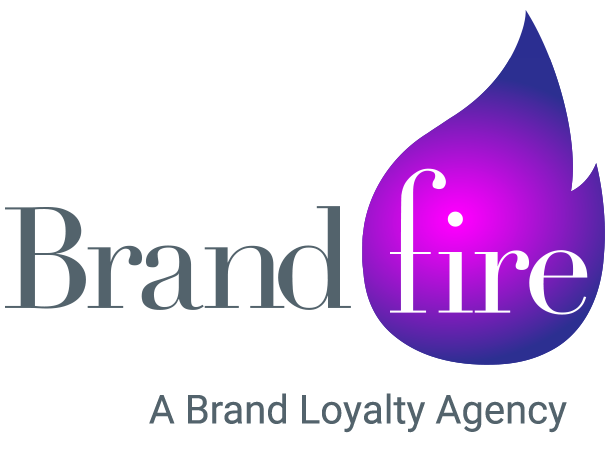
Customer loyalty and customer retention are crucial aspects of running a successful business. While attracting new customers is important, retaining existing customers is equally, if not more, vital. This is where a sound loyalty program strategy comes into play. A well-designed and effectively managed customer loyalty program can help businesses strengthen customer loyalty and drive repeat business. However, creating and implementing a successful loyalty program can be complex. This is where hiring an expert loyalty consultant will ensure that your loyalty program will be a success.
Why Choose a Loyalty Strategic Consultant?
A loyalty consultant specialises in designing, implementing, and managing customer loyalty programs. Working with a loyalty consultant can provide businesses with valuable expertise, fresh perspectives, and strategic data insights. These consultants deeply understand loyalty programs, customer relationship management (CRM), and data analytics. They can help businesses develop a loyalty program strategy, design the program structure, implement it, and measure its performance.
Expertise and Insights
One of the primary benefits of hiring a loyalty consultant is gaining access to their expertise and insights. Loyalty consultants have extensive experience designing and implementing successful customer loyalty programs. They are well-versed in industry best practices and emerging trends. By working with a loyalty consultant, businesses can tap into this wealth of knowledge and ensure their loyalty program is built on a solid foundation.
Working with a loyalty consultant can provide businesses with valuable expertise, fresh perspectives, and strategic data insights
Objectivity and Fresh Perspective
Another advantage of working with a loyalty consultant is the objectivity they bring to the table. Consultants can provide an unbiased viewpoint and offer fresh perspectives on the business’s customer loyalty program. They can identify areas for improvement and provide recommendations based on industry benchmarks and customer insights. This objectivity is particularly valuable when businesses are too close to their operations and may not see potential blind spots or opportunities for improvement.
The loyalty technology market is filled with companies that offer loyalty solutions and strategies to businesses looking to implement loyalty programs. While these companies can provide valuable guidance, being aware of potential biases is essential. Many of these companies have technology products or platforms that may not be the best fit for your business.
This is where a strategic consultant can help. A strategic consultant specialises in identifying the best technology solutions for businesses and can work with different technology companies on your behalf. They can provide unbiased recommendations based on your needs and goals, ensuring you make informed decisions. By partnering with a strategic consultant, you can navigate the loyalty technology market more effectively and find solutions that align with your customer loyalty program strategy. Their expertise and industry knowledge can save you time and resources, ultimately leading to the successful implementation of loyalty programs.
How to Choose the Right Strategic Loyalty Consultant
When selecting a loyalty consultant, it is essential to consider several factors to ensure a successful engagement. Here are some key considerations:
Industry Experience
Consider the consultant’s industry experience. While loyalty consultants can provide valuable insights across various sectors, having experience in the specific industry in which the business operates can be an added advantage. Industry-specific knowledge allows consultants to understand the unique challenges and opportunities that businesses in that sector face, enabling them to design tailored customer loyalty programs.
References and Track Record
Check the loyalty consultant’s references and track record. Request information about past clients and projects to understand their expertise and success rate in implementing customer loyalty programs. A reputable loyalty consultant should be able to provide case studies and testimonials from satisfied clients. Reach out to these references to gather feedback on the consultant’s performance and the outcomes of their engagements.
Cost and Budget
Consider the cost and budget for hiring a loyalty consultant. The loyalty program cost of hiring a consultant will vary depending on experience, project complexity, and business size. However, it is equally important to prioritise value over cost. Focus on finding a consultant to deliver results and help the business achieve its customer loyalty program objectives.

The Loyalty Consulting Process
Once a loyalty program consultant has been selected, they will typically follow a structured process to develop and implement a customer loyalty program. Here is an overview of the key steps involved:
Business Sector and Competitor Analysis
The loyalty program consultant will start by thoroughly analysing the business’s sector and competitors. This analysis helps identify industry trends, benchmark the competition, and understand the unique challenges and opportunities within the sector. By comprehensively understanding the business’s landscape, the consultant can develop a customer loyalty program that stands out and meets the target audience’s needs.
Senior Management Alignment
Working closely with the senior management team is crucial to ensure the customer loyalty program objectives align with the business’s overall objectives. The loyalty program consultant will collaborate with key stakeholders to define and refine the program’s goals, strategies, and key performance indicators (KPIs). This alignment ensures that the loyalty program strategy is integrated into the business’s overall strategy and receives the necessary support and resources.
Customer Research and Insights
Understanding the target audience is essential for designing an effective customer loyalty program. The loyalty program consultant will conduct thorough customer research to gain insights into customer preferences, motivations, and behaviours. This research may involve surveys, interviews, focus groups, or data analysis. By understanding what customers want from a loyalty program and how it can change their behaviour, the consultant can tailor the program to meet those needs and drive engagement.
Program Design and Customer Journey
Based on the insights gathered from customer research, the loyalty program consultant will design the customer loyalty program and define the customer journey. This includes determining the program’s structure, such as earning and redemption mechanics, tiers and levels, and the types of rewards to be offered. The consultant will also focus on creating a seamless and delightful customer experience throughout the reward program’s lifecycle, from enrollment to redemption.
Technology Selection and Integration
Choosing the right technology to deliver the customer loyalty program is crucial for its success. The loyalty program consultant will advise on the best loyalty program software solutions that align with the business’s objectives and budget. This may involve selecting a loyalty platform, CRM system, or marketing automation tools. The consultant will oversee the integration of these technologies into the business’s existing systems and ensure a smooth implementation process.
Types of Technology in Loyalty Programs
Points Programs: Points programs are a popular type of technology used in loyalty programs. Customers earn points based on their purchases and can redeem them for rewards, discounts, or exclusive perks. Loyalty consultants can help businesses design and implement points programs that align with their goals and customer preferences.
Gamification: Gamification involves incorporating game-like elements, such as challenges, leaderboards, and badges, into loyalty programs to enhance customer engagement and motivation. Loyalty consultants can recommend gamification strategies and platforms that resonate with the target audience and encourage desired behaviours.
Surprise and Delight: Surprise and delight techniques involve surprising customers with unexpected rewards, personalised offers, or exclusive experiences. Loyalty consultants can assist businesses in implementing surprise and delight strategies, leveraging data analytics and customer insights to deliver meaningful surprises that strengthen customer loyalty.
Competitions: Competitions can drive customer engagement and create a sense of excitement and urgency in loyalty programs. Loyalty consultants can help design and execute competitions that encourage participation, foster a sense of community, and reward customers for their loyalty and advocacy.
Mobile Apps: Mobile apps provide a convenient platform for customers to access and engage with loyalty programs. Loyalty consultants can assist businesses in developing user-friendly mobile apps that offer seamless program navigation, personalised offers, and easy redemption of rewards.
Blockchain: Blockchain technology can enhance loyalty programs’ security, transparency, and efficiency. Loyalty consultants can guide businesses in leveraging blockchain to ensure secure transactions, prevent fraud, and create a decentralised ecosystem that benefits customers and businesses.
The role of a strategic consultant in customer loyalty programs goes beyond just developing communication plans and executing program launches. They also play a crucial role in identifying the best technology solutions and working with preferred technology partners to deliver the program effectively. This involves evaluating various technology options, understanding the specific needs of the loyalty program, and selecting the technology partner that can provide the most suitable solution. The strategic consultant will then collaborate with the technology partner to ensure seamless integration and delivery of the program, leveraging their expertise to optimise the use of technology for maximum impact.
By partnering with a strategic consultant, you can navigate the loyalty technology market more effectively and find solutions that align with your customer loyalty program strategy.
Reward Rules and Program Mechanics
The loyalty program consultant will define the reward rules and program mechanics. This includes determining how customers can earn and redeem loyalty rewards, setting the criteria for tier progression, and establishing any additional rules or restrictions. The consultant will ensure the reward structure is fair, transparent, and aligned with the business’s financial goals and customer preferences.
ROI Calculation
Measuring a customer loyalty program’s return on investment (ROI) is essential to evaluate its effectiveness. The loyalty program consultant will develop a framework for calculating ROI, considering customer acquisition costs, customer lifetime value, and revenue generated through the program. This analysis helps the business assess the program’s financial impact and make data-driven decisions for future enhancements.
KPI Measurement and Monitoring
Establishing key performance indicators (KPIs) is crucial for tracking the customer loyalty program’s performance. The loyalty program consultant will work with the business to define relevant KPIs, such as customer engagement, retention rates, incremental revenue, and referral rates. They will set up systems to measure and monitor these KPIs regularly, providing insights into the program’s effectiveness and identifying areas for improvement.
Program Communication and Launch
Effective communication is key to the success of a customer loyalty program. The loyalty consultant will develop a comprehensive communication plan to inform customers about the loyalty program, its benefits, and how to participate. This may involve creating marketing materials, designing a program website or app, and implementing targeted email or SMS campaigns. The consultant will ensure the customer loyalty program launch is well-executed and generates customer excitement.
Ongoing Communication and Engagement
Once the customer loyalty program is launched, ongoing customer communication and engagement are critical. The loyalty consultant will help develop strategies to inform customers about program updates, promotions, and personalised offers, including referrals. This may include implementing marketing automation tools to deliver targeted messages based on customer behaviour and preferences. The consultant will also provide recommendations for ongoing loyalty program optimisation and enhancement.
Leveraging AI in Loyalty Programs
Artificial intelligence (AI) can play a significant role in enhancing customer loyalty programs. Loyalty consultants can help businesses leverage AI technologies like machine learning and predictive analytics to gain deeper insights into customer behaviour and preferences. AI can enable personalised experiences, real-time recommendations, and targeted marketing campaigns, ultimately driving customer loyalty and engagement in the loyalty program.
Conclusion
Building and managing a successful customer loyalty program requires expertise, strategic thinking, and a deep understanding of customer behaviour. Hiring a loyalty consultant can give businesses the necessary insights, objectivity, and resources to design and implement a loyalty program that drives customer loyalty and revenue. By following best practices, defining clear objectives, and working closely with the loyalty consultant, businesses can create a customer retention strategy that retains existing customers and attracts new ones, ultimately contributing to long-term growth and success.
Contact Brandfire – the expert Loyalty consultants – can be valuable in building and managing a successful customer loyalty program. With their expertise and resources, Brandfire can help businesses design and implement a program that drives customer loyalty and revenue. They can develop a comprehensive communication plan, leverage AI technologies, and provide ongoing recommendations for customer loyalty strategy optimisation. By partnering with Brandfire, businesses can create a program that retains existing customers, attracts new ones, and contributes to long-term growth and success.
